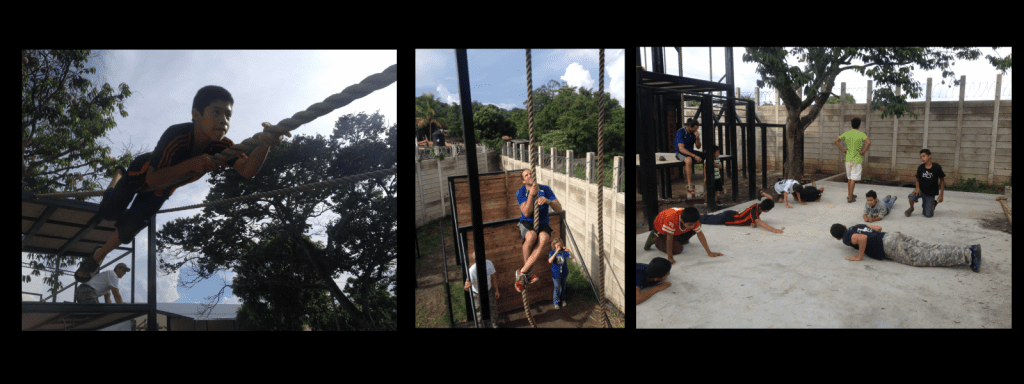Introduction
In an era where social media and societal pressures significantly influence self-perception, youth are increasingly grappling with issues related to self-image and mental health. To address these challenges, a non-profit organization has developed a comprehensive mentorship program aimed at transforming the self-image of young individuals through holistic development. This case study explores the impact of the program on a specific participant, highlighting the strategies employed and the outcomes achieved.
Background
Participant Profile:
- Name: Alex
- Age: 16
- Gender: Male
- Background: Alex comes from a single-parent household in an urban area. He has struggled with self-esteem issues, exacerbated by bullying at school and negative experiences on social media. Academically, Alex performs well but often feels isolated and anxious in social settings.
Initial Self-Image and Mental Health Status:
- Self-Image: Alex had a poor self-image, often comparing himself unfavorably to his peers. He felt inadequate and unworthy, leading to a lack of confidence.
- Mental Health: Alex exhibited symptoms of anxiety and mild depression. He reported frequent feelings of sadness, low motivation, and difficulty sleeping.
Program Overview
The non-profit’s mentorship program is designed to address the multifaceted aspects of self-image and mental well-being through a structured approach that includes physical, mental, social, and spiritual development.
Program Components:
- Physical Activities: Regular participation in sports and fitness activities, including obstacle courses and team sports, aimed at building physical strength, teamwork, and resilience.
- Mental Health Workshops: Weekly sessions focusing on mental health education, coping strategies, and stress management techniques.
- Social Skills Training: Activities designed to improve communication skills, foster positive peer interactions, and build supportive relationships.
- Spiritual Development: Opportunities for participants to explore their values and beliefs, promoting a sense of purpose and inner peace.
Program Implementation
Initial Assessment: The program began with a comprehensive assessment of Alex’s self-image, mental health, and overall well-being. This included:
- Surveys and Questionnaires: To gauge Alex’s perceptions of himself and his mental health status.
- Interviews: In-depth discussions with Alex to understand his challenges, goals, and aspirations.
- Physical Evaluation: Assessing Alex’s physical fitness and identifying areas for improvement.
Goal Setting: Based on the initial assessment, personalized goals were established for Alex, focusing on:
- Improving Self-Image: Developing a more positive and realistic perception of himself.
- Enhancing Mental Health: Reducing symptoms of anxiety and depression through targeted interventions.
- Building Social Connections: Encouraging positive interactions and friendships.
- Promoting Physical Fitness: Increasing physical activity to improve health and build resilience.
Mentorship and Support: Alex was paired with a dedicated mentor who provided guidance, support, and encouragement throughout the program. The mentor played a crucial role in helping Alex stay motivated and committed to his goals.
Results and Outcomes
Quantitative Data:
- Self-Image Improvement: After six months in the program, Alex’s self-image showed significant improvement. Surveys indicated a 40% increase in his self-esteem scores.
- Mental Health Enhancement: Alex’s anxiety and depression scores decreased by 35%, as measured by standardized mental health assessments.
- Physical Fitness: Alex’s participation in physical activities resulted in a 25% improvement in his fitness levels, including strength, endurance, and flexibility.
Qualitative Data:
- Interviews and Testimonials: Feedback from Alex, his mentor, and his mother provided valuable insights into the program’s impact.
- Alex: “I’ve learned to see myself differently. I feel stronger, both physically and mentally. The program helped me make friends and believe in myself.”
- Mentor: “Alex has grown tremendously. He’s more confident, open, and engaged. It’s been rewarding to see his transformation.”
- Alex’s Mother: “I’ve seen a big change in Alex. He’s happier, more outgoing, and seems to have found a sense of purpose.”
Behavioral Changes:
- Increased Participation: Alex became more active in school and community activities, joining the school soccer team and volunteering for local events.
- Positive Social Interactions: Alex developed meaningful friendships and improved his communication skills, leading to more positive social experiences.
Academic Performance: Alex’s academic performance remained strong, and his newfound confidence and reduced anxiety helped him approach his studies with a more positive attitude.

Challenges and Lessons Learned
Challenges Encountered:
- Initial Resistance: Alex was initially hesitant to participate fully in the program, fearing judgment and failure.
- Consistency: Maintaining consistency in participation was challenging, especially during periods of increased academic pressure.
- External Influences: Negative influences from peers and social media continued to pose challenges.
Strategies to Overcome Challenges:
- Building Trust: The mentor focused on building a strong, trusting relationship with Alex, which helped him feel more comfortable and supported.
- Flexibility: The program offered flexible scheduling and activities to accommodate Alex’s academic commitments and personal needs.
- Parental Involvement: Engaging Alex’s mother in the program provided additional support and reinforcement at home.
Lessons Learned:
- Individualized Approach: Personalized goals and tailored interventions are crucial for addressing the unique needs of each participant.
- Holistic Development: Integrating physical, mental, social, and spiritual development creates a comprehensive support system for participants.
- Ongoing Support: Continued mentorship and support are essential for sustaining progress and preventing relapse.
Conclusion
The case of Alex demonstrates the transformative potential of a comprehensive mentorship program in improving self-image and mental well-being among youth. By addressing the multifaceted aspects of self-perception and providing targeted support, the program helped Alex develop a healthier self-image, enhance his mental health, and build positive social connections.
Implications for Other Organizations and Programs:
- Scalability: The success of this program suggests that similar approaches can be scaled and adapted to different settings and populations.
- Collaboration: Collaboration with schools, mental health professionals, and community organizations can enhance the program’s effectiveness and reach.
- Continuous Improvement: Regular evaluation and feedback are essential for refining and improving program components to better meet the needs of participants.
Recommendations for Future Program Development:
- Expand Outreach: Increase outreach efforts to engage more youth who could benefit from the program.
- Enhance Digital Literacy: Incorporate digital literacy components to help participants navigate social media responsibly and build resilience against negative influences.
- Strengthen Family Involvement: Involve families more actively in the program to provide a supportive environment at home and reinforce positive changes.
By investing in comprehensive mentorship programs that promote holistic development, we can empower young individuals like Alex to overcome challenges, build confidence, and achieve their full potential.




